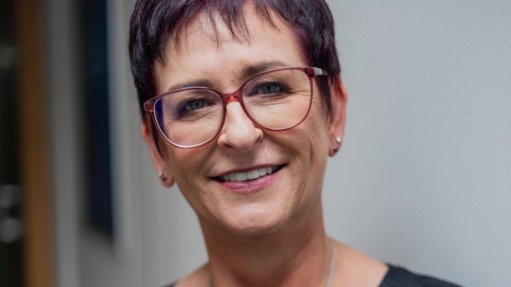Inquiry into licensing framework for satellite services opens
The Independent Communications Authority of South Africa (Icasa) has launched an inquiry into the licensing framework for satellite services in South Africa.
Interested stakeholders have until November 12 to comment on the proposed new licensing framework for satellite services as outlined in the ‘Consultation on the proposed new licensing framework for satellite services’ gazetted by Icasa on August 14.
According to Icasa, the objectives of the new inquiry include the development of a transparent and streamlined regulatory framework with clear rules to establish regulatory certainty for potential satellite operators in South Africa.
The inquiry aims to determine a regulatory and licensing framework for satellite services and the procedures that Icasa may implement for the provision of satellite services in the country, as well as to consider the need to review spectrum fees, taking into account the increasing amount of bandwidth used by satellite systems operating in higher frequency bands.
The probe also aims to determine the procedures for authorising user terminals, Internet of Things terminals, earth station user terminals communicating with space stations while in motion and ground earth stations in the South African territory, as well as determine the procedures for the registration of international satellite operators that intend providing a service either directly or indirectly, through existing licensed operators, to South African consumers.
According to the inquiry document, technological advances have enabled satellites to provide broadband connectivity to large areas at minimal extra marginal cost.
Satellites are also highly effective at providing connectivity services to remote and rural areas and are resilient when terrestrial services have been impacted following, for example, natural disasters, such as earthquakes or tsunamis.
Satellite systems can also provide continuous and consistent services where terrestrial services cannot be provided, including earth stations affixed to ships and aircraft, known as earth stations in motion, or ESIMs.
The licensing of satellite networks, a matter under the jurisdiction of individual countries, ensures that satellite operators and service providers follow the rules and conditions contained within the radio regulations and the outcomes of applicable bilateral discussions, including coordination.
According to Provision 18.1 of the Radio Regulations, “no transmitting station may be established or operated by a private person or by any enterprise without a licence issued in an appropriate form and in conformity with the provisions of these regulations by or on behalf of the government of the country to which the station in question is subject”.
Each country is permitted to enact its own domestic rules and regulations, in line with the radio regulations.
In South African, electronic communications services, which satellite communications services are considered to fall under, are guided by the Electronic Communications Act (ECA).
In terms of Section 31 (1) of the ECA, “no person may transmit any signal by radio or use radio apparatus to receive any signal by radio, except under and in accordance with a radio frequency spectrum licence granted by the authority to such person in terms of the ECA”.
Article Enquiry
Email Article
Save Article
Feedback
To advertise email advertising@creamermedia.co.za or click here
Press Office
Announcements
What's On
Subscribe to improve your user experience...
Option 1 (equivalent of R125 a month):
Receive a weekly copy of Creamer Media's Engineering News & Mining Weekly magazine
(print copy for those in South Africa and e-magazine for those outside of South Africa)
Receive daily email newsletters
Access to full search results
Access archive of magazine back copies
Access to Projects in Progress
Access to ONE Research Report of your choice in PDF format
Option 2 (equivalent of R375 a month):
All benefits from Option 1
PLUS
Access to Creamer Media's Research Channel Africa for ALL Research Reports, in PDF format, on various industrial and mining sectors
including Electricity; Water; Energy Transition; Hydrogen; Roads, Rail and Ports; Coal; Gold; Platinum; Battery Metals; etc.
Already a subscriber?
Forgotten your password?
Receive weekly copy of Creamer Media's Engineering News & Mining Weekly magazine (print copy for those in South Africa and e-magazine for those outside of South Africa)
➕
Recieve daily email newsletters
➕
Access to full search results
➕
Access archive of magazine back copies
➕
Access to Projects in Progress
➕
Access to ONE Research Report of your choice in PDF format
RESEARCH CHANNEL AFRICA
R4500 (equivalent of R375 a month)
SUBSCRIBEAll benefits from Option 1
➕
Access to Creamer Media's Research Channel Africa for ALL Research Reports on various industrial and mining sectors, in PDF format, including on:
Electricity
➕
Water
➕
Energy Transition
➕
Hydrogen
➕
Roads, Rail and Ports
➕
Coal
➕
Gold
➕
Platinum
➕
Battery Metals
➕
etc.
Receive all benefits from Option 1 or Option 2 delivered to numerous people at your company
➕
Multiple User names and Passwords for simultaneous log-ins
➕
Intranet integration access to all in your organisation


















